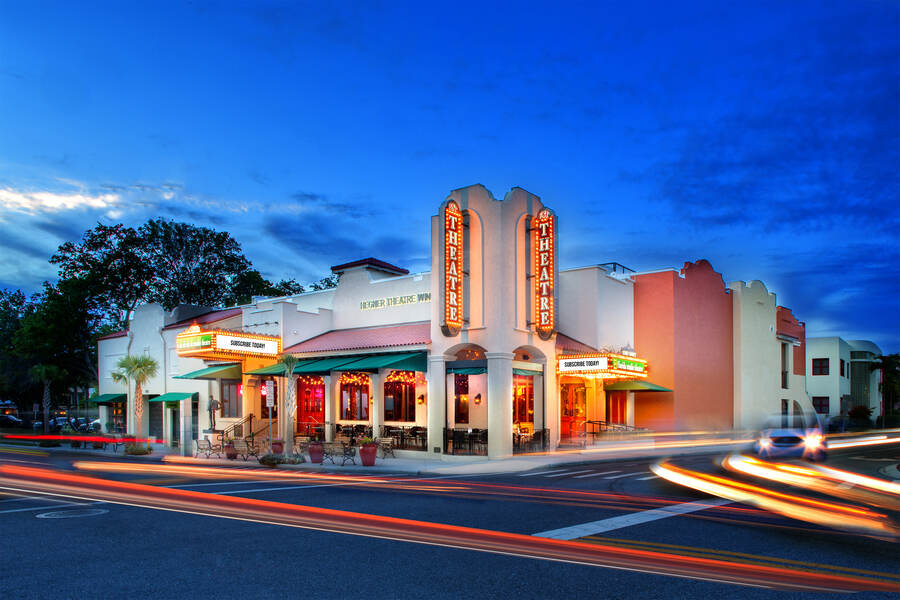At this nerve-jangling time of instability at many of our nation’s theatres, there are a few institutional beacons lighting the way toward financial resilience. Sarasota’s Florida Studio Theatre (FST) isn’t just stable, it’s thriving, operating with a consistent surplus. It has achieved this success in part through an aversion to renting, which has led the organization not only to buy its own stage equipment, but also to acquire 23 properties in its home city.
It started, naturally, with the purchase of the theatre space. When producing artistic director/CEO Richard Hopkins joined the organization in 1980, he observed that the company had become a victim of its own success: As soon as it started attracting audiences, the landlord began charging rent for a space he had previously been happy to donate, meaning that the company couldn’t afford to stay.
“We rented the first year here in Florida,” Hopkins recalled. “Then the prices went through the roof. I said: ‘Never rent again, we’ve got to buy.’”
Then, in the early 1980s, FST bought its first actor housing. A local physician was selling a duplex; Hopkins realized the theatre could cover the entire mortgage by renting out just one unit, and could use the other as free artist housing. Hopkins offered to pay the asking price if the doctor would donate the down payment. The owner agreed, and thus began an accumulation of property that now includes six structures the company owns and uses for producing and performing, as well as 17 other properties, mostly for employee housing. Over the past three decades, the theatre has paid down the mortgages and currently owns all 23 buildings outright.
Like most theatres, FST shut down during the pandemic. Here’s where its properties proved especially valuable: All that suddenly vacant artist housing was able to generate rental income. Along with other factors, this helped the theatre weather COVID better than many other similarly sized institutions.
The stability created by FST’s real estate holdings, along with very affordable subscription prices and many enthusiastic community supporters, has allowed the theatre to expand even as many other theatres cut programming and staff. FST is currently in the midst of a capital campaign to create its largest building yet: a multi-story, $60 million structure with performance spaces, patron parking, and employee housing. Inflation doubled the original construction estimate, but Hopkins remains undaunted, confidently stating, “We’ve got it under control.”
Karen Sabo (she/her) is an actor/director/writer/teacher currently working as artist-in-residence in the Theatre and Dance Department at Missouri State University. She’s been an actor in three different resident companies and fancies herself a theorist. www.karensabo.com


